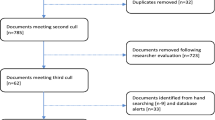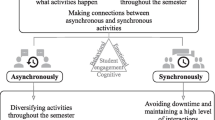Abstract
Group preparation for teaching contest, or lesson polishing, is a teacher professional development activity unique to China. Through participant observation and discourse analysis of a typical case, this study explores how a science lesson evolved through lesson-polishing process and how such process influenced individual learning and the development of local teaching community. Our work illustrates both the values and the issues of lesson polishing as a type of teacher professional development activity. On one hand, combining professional interactions and trial lessons, lesson-polishing activity opens up space for critical yet cooperative professional interactions and tryouts of different designs and teaching strategies, providing opportunities for individual learning and development of practical rationalities within local community. On the other hand, the functions of such activities are greatly limited by the tendency of refining every detail in lesson design, the existence of overriding dispositions and authorities with overriding power, as well as the focus on practical suggestions that can be directly implemented. Suggestions for improvement are made in the final discussion.
Similar content being viewed by others
Notes
We did not come across any valid source mentioning the origin of teaching contest. A teacher instructor told us in an interview that this tradition started before the Cultural Revolution when China built its educational system in alignment with that of the former Soviet Union, but this was only what he heard from an older teacher instructor.
L and I are both male teachers; F is a female teacher. L has been a science teacher for eight years, while I and F were both in their seventh year teaching elementary science. They all have bachelor’s degrees and were all in their 30th.
C and U were both male and in their 40th. Both of them had taught elementary science for more than eight years before switching to administrative positions.
A was in his late 40th. He has been a teacher instructor for 10 years, before that he used to be a high school geography teacher.
When K asked “who will welcome the daybreak earlier, Shanghai or New York?” the student representing New York was sitting right at “the daybreak,” while the student representing Shanghai was 12 h apart sitting on the other side. The students were given the question without learning about the meridian line or dateline, thus many made judgments based on relative positions and earth self-rotation direction only, which led to the answer of “New York”. Their judgment echoed S2’s idea that “there’s no before or after.”
References
Borko H (2004) Professional development and teacher learning: mapping the terrain. Educ Res 33:3–15
Bourdieu P (1998) Practical reason: on the theory of action. Stanford University Press
Bryk AS, Schneider BL (2002) Trust in schools: a core resource for improvement. Russell Sage Foundation Publications
Darling-hammond L (1997) The right to learn: a blueprint for creating schools that work. Jossey-Bass, San Francisco
Darling-Hammond L (2005) Teaching as a profession: lessons in teacher preparation and professional development. Phi delta kappan 87(3):237–240
Franke ML, Carpenter TP, Levi L, Fennema E (2001) Capturing teachers’ generative change: a follow-up study of professional development in mathematics. Am Educ Res J 38:653–689
Greenwood CR, Dinwiddie G, Terry B, Wade L, Stanley SO, Thibadeau S, Delquadri JC (1984) Teacher-versus peer-mediated instruction: an ecobehavioral analysis of achievement outcomes. J Appl Behav Anal 17(4):521–538
Grossman P, Wineburg S, Woolworth S (2001) Toward a theory of teacher community. Teach Coll Rec 103:942–1012
Hammer D, Russ R, Mikeska J, Scherr R (2008) Identifying inquiry and conceptualizing students’ abilities. In: Duschl RA, Grandy RE (eds) Teaching scientific inquiry: recommendations for research and implementation. Sense Publishers, Rotterdam, pp 138–156
Herbst V, Chazan D (2002) Exploring the practical rationality of mathematics teaching through conversations about videotaped episodes: the case of engaging students in proving. Learn Math 23(1):1–13
Herbst P, Nachlieli T, Chazan D (2011) Studying the practical rationality of mathematics teaching: what goes into “installing” a theorem in geometry? Cogn Instr 29(2):218–255
Hu GW (2002) English language teaching in the People’s Republic of China. In: Silver RE, Hu GW, Iino M (eds) English language education in China, Japan, and Singapore. Nanyang Technological University, Singapore
Huang R, Bao J (2006) Towards a model for teacher professional development in China: introducing Keli. J Math Teach Educ 9(3):279–298
Lave J, Wenger E (1991) Situated learning: legitimate peripheral participation. Cambridge University Press, Cambridge
Lemke JL (1990) Talking science: language, learning, and values. Ablex Publishing Corporation, Norwood
Levin DM, Hammer D, Coffey JE (2009) Novice teachers' attention to student thinking. J Teach Educ 60(2):142–154
Lieberman A (1995) Practices that support teacher development: transforming conceptions of professional learning. Phi delta kappan 76(8):591–596
Little J (1990) The persistence of privacy: autonomy and initiative in teachers’ professional relations. Teach Coll Rec 91(4):509–536
Paine L, Ma L (1993) Teachers working together: a dialogue on organizational and cultural perspectives of Chinese teachers. Int J Educ Res 19(8):675–697
Posner G, Strike K, Hewson P, Gertzog W (1982) Accommodation of a scientific conception: towards a theory of conceptual change. Sci Educ 66(2):211–227
Smith DC, Neale DC (1991) The construction of subject-matter knowledge in primary science teaching. In: Brophy J (ed) Advances in research on teaching. Teachers’ knowledge of subject matter as it relates to their teaching practice, vol 2. JAI Press, Greenwich, pp 187–243
Stigler JW, Stevenson HW (1991) How Asian teachers polish each lesson to perfection. Am Educ 15(1):12–20
Wenger E (1998) Communities of practice: learning as a social system. Syst Think 9(5):2–3
Acknowledgments
This work is supported by a grant from the 12th Five-year National Plan on Educational Research (Grant BFA110052, “How sociocultural learning environments influence the effectiveness of classroom scientific inquiry”).
Author information
Authors and Affiliations
Corresponding author
Appendix
Rights and permissions
About this article
Cite this article
Tang, X., Shao, F. On the Evolution of a Lesson: Group Preparation for Teaching Contest as Teacher Professional Development Activity for Chinese Elementary Science Teachers. J Sci Educ Technol 23, 252–266 (2014). https://doi.org/10.1007/s10956-013-9454-8
Published:
Issue Date:
DOI: https://doi.org/10.1007/s10956-013-9454-8




